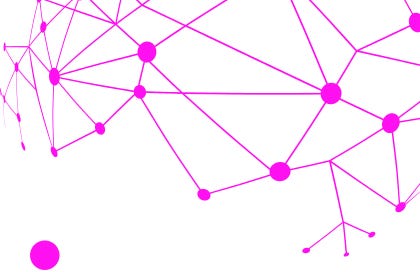OK, not everything, but I do do a lot remotely. Work, grocery shopping, regular shopping, learning. Even socially, now that I live thousands of miles from most of my closest connections, there’s usually a screen involved in casual hangouts.
It’s convenient. But something is getting lost inside the interwebs.
I now live just a few minutes from where my grandparents lived when I was a kid. A neighborhood where people knew each other’s names. Neighbors, friends, and family members would drop by unannounced for a quick cup of tea, sitting at the kitchen table and chatting about nothing much at all. Showing up without calling wasn’t rude then (nor was calling usually possible, given the absence of cell phones!). It was community.
Now, knocking on a door unannounced is more likely to end in someone hiding behind the curtains, an annoyed group chat, or a social media rant than a warm, friendly drink. Can you believe how rude and intrusive?
But I miss that ease of genuine contact. The spontaneous conversations and the quiet comfort of knowing you weren’t alone. We weren’t constantly protecting our boundaries or worrying about being an inconvenience.
Remote everything tells us we don’t need each other. Or, at least, that we don’t have to deal with each other. Why help your best friend move when he can hire TaskRabbit? Why pick up medicine for your sick neighbor when Instacart exists? Why drive your dad to the airport when he could get an Uber?
Convenience is wonderful until it becomes isolating. The more we lean into all remote all the time, the more we’re developing an “I don’t owe anyone anything” mindset where everyone is their own island. For those of us who knew life before the internet, it’s relatively easy to choose to disconnect, but the younger post-COVID generation seems increasingly uncomfortable with real-life give-and-take relationships.
The generation that finished high school or college in lockdown largely sees online life as the norm. There are many benefits to being able to manage social relationships at a distance, of course, but from browsing the socials, it’s also clear that there’s an increase in ‘drama’ in relationships and an increase in the attitude that being present and involved in other people’s lives is an inconvenience. Can’t block someone in real life? Just cut them off. Requests for help navigating a difficult situation? No, that’s emotional labor.
It’s becoming more common to label relationships as toxic and unnecessary and then discard them instead of building, nurturing, and sustaining them through discomfort (because no relationship is without that!).
So the choice of convenience underlying all this remote work and remote interaction is also a silent choice to sacrifice community—in-person, connected community where people share experiences and support in the real world. Losing that type of community means losing resilience and patience. It makes everyday interactions seem inconvenient. And it isolates people from the systems that have traditionally been there to help when life gets difficult.
I come across so many videos of people talking about loneliness, emotional burnout, and anxiety online, all mixed between clips of people talking about protecting personal boundaries (excessively), not owing anyone anything, being 100% independent, not needing anyone.
We complained so much about being told to self-isolate during COVID. Now, we’re choosing it.
I’m not saying we should all go back to the office, cancel Instacart and DoorDash, and stop interacting within our online communities. I’m definitely not suggesting you randomly show up at your friend’s house unannounced tomorrow (I don’t think we’ll ever return to a time when that is considered the norm). But I am suggesting that we could be more intentional about the real-world connections we have.
No, you don’t owe anyone anything. We never did things for each other because they were owed. Your relationships are not a burden.
Let’s normalize occasionally inconveniencing ourselves to help others and being willing to be (potentially) seen as an inconvenience. Sometimes, relationships mean driving your friend to the airport at 6 AM, helping your brother move house (ugh, I know… but boxes are a part of life!), and taking your neighbor a pint of milk if she’s not feeling up to going to the store (she probably wants the company more than she wants the milk).
I’ve spent the past year building in-person (or at least face-to-face) connection back into my life with more intention—daily dinners with my aunt, volunteering with Toad Patrol, visiting my local pub, video chats instead of texts. Why?
Community doesn’t survive without intentional effort.
Human connection cannot be replaced by an app.




